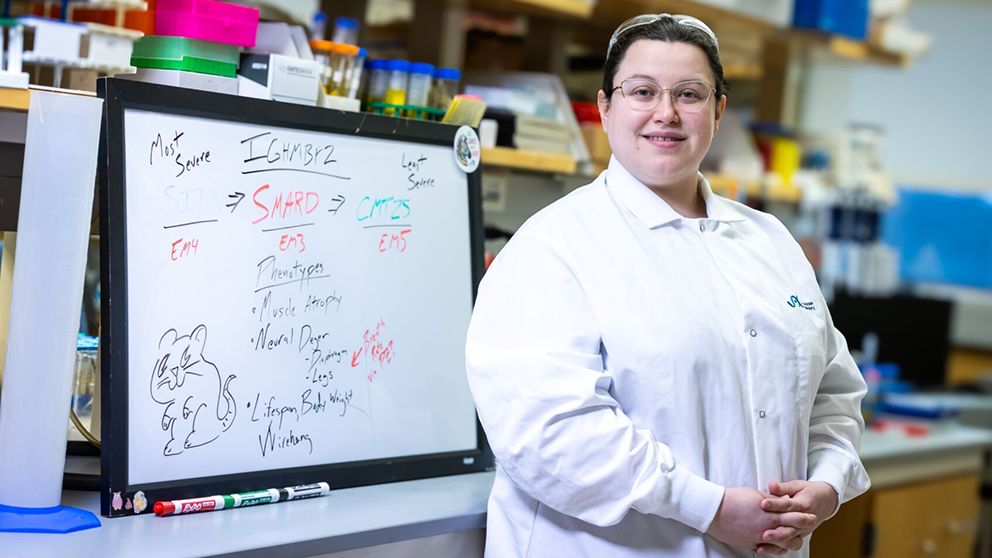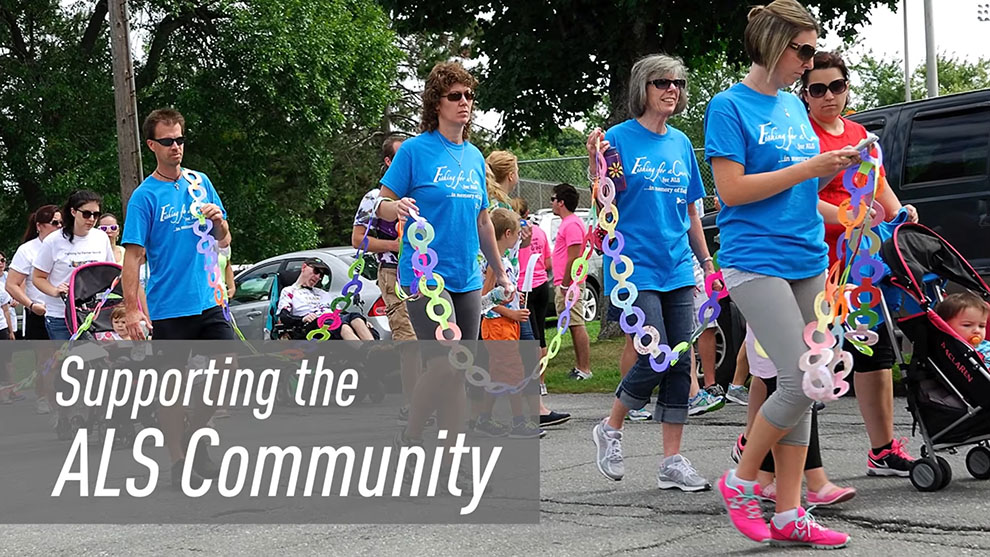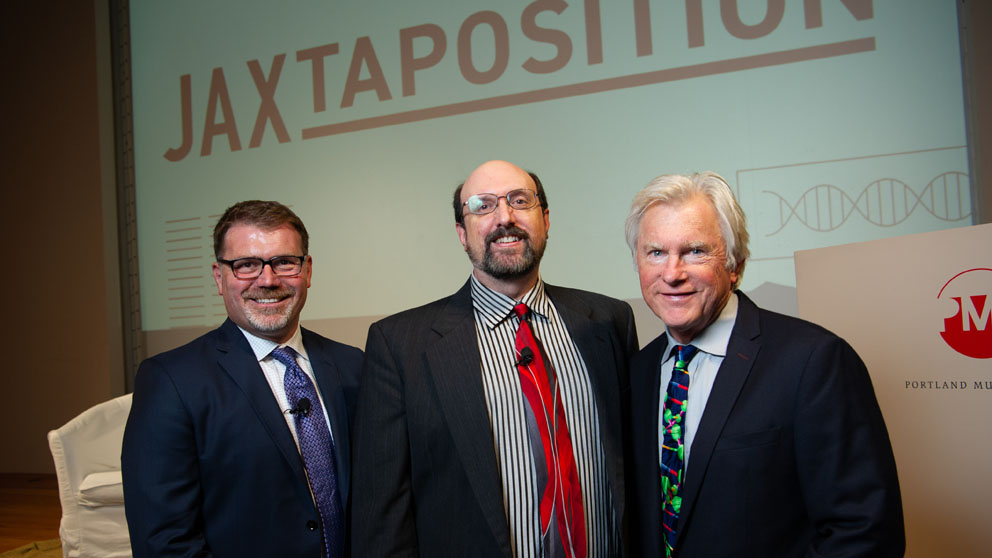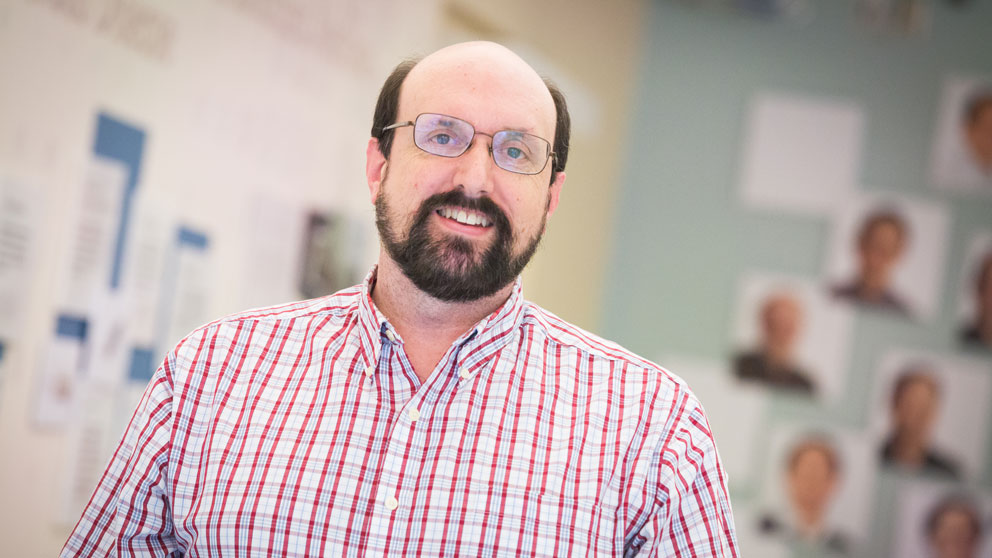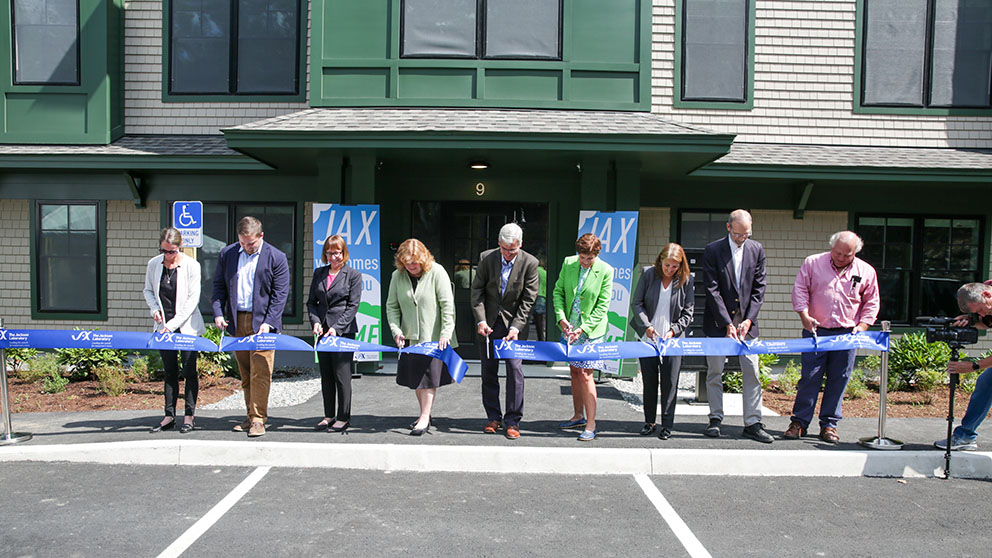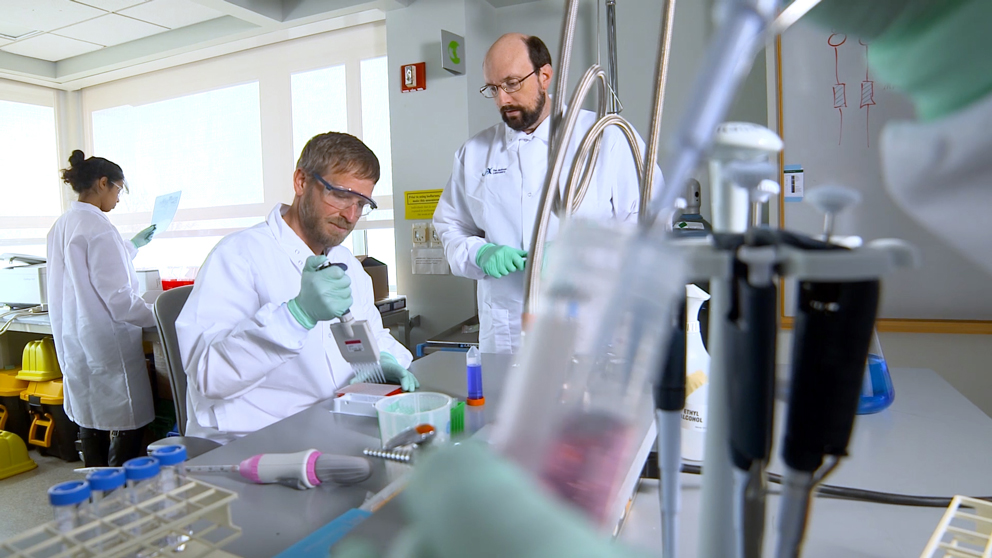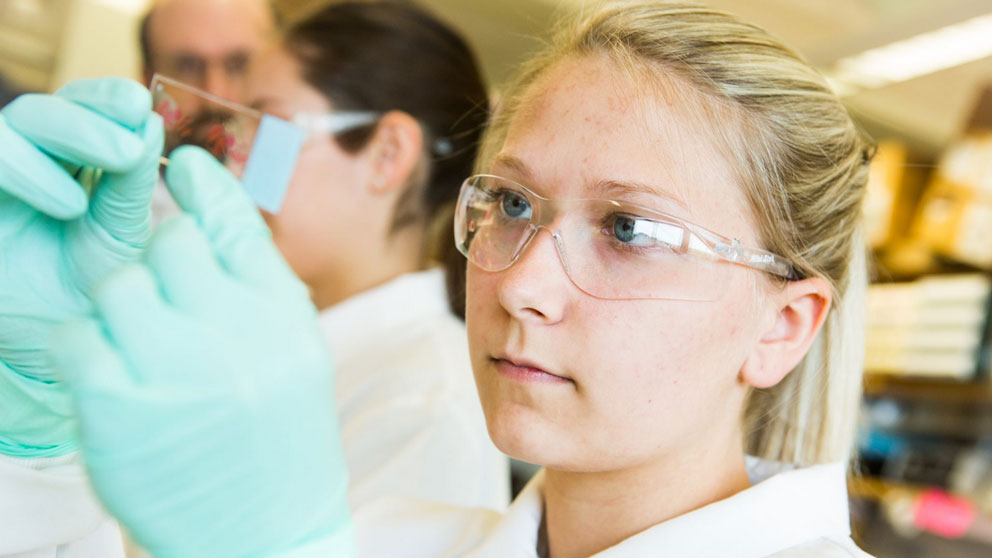Greg Cox, Ph.D.
Visiting Professor
Studies the genetics of degenerative muscle diseases using mouse models for SMA, ALS, muscular dystrophy and more.
Our lab uses mouse models to identify the molecular pathways underlying degenerative motor neuron diseases in humans, such as spinal muscular atrophy (SMA) and amyotrophic lateral sclerosis (ALS, also known as Lou Gehrig's disease). We cloned the gene for neuromuscular degeneration in a mouse model for a lethal infantile form of SMA known as spinal muscular atrophy with respiratory distress. In addition, we are studying genetic background effects on onset and progression of ALS symptoms in the mouse model in hopes that these will provide novel targets for therapy.
We are also studying mice with degenerative muscle diseases that are models for specific forms of muscular dystrophy in humans. We cloned a genetic defect and have localized the mutation to the muscle-specific titin gene, the largest known coding gene in the mammalian genome. The mouse strain is a novel model of progressive muscular dystrophy. We also identified the mutation for a new form of rostrocaudal muscular dystrophy that affects skeletal muscle tissues with an unusual front-to-back severity of symptoms. We now have an excellent model for this childhood disorder to learn about the molecular causes of disease and to test for potential therapeutic strategies.
Grants, honors and accomplishments
1994 - Distinguished Dissertation Award, University of Michigan. 1994–1995 NIH Developmental Genetics Postdoctoral Training Grant, The Jackson Laboratory.
1991–1993 - National Science Foundation (NSF) Predoctoral Fellowship, U Michigan.
1989–1990 - NIH Predoctoral Genetics Training Grant, University of Michigan.
1988 - Fred Telonicher Memorial Award, Humboldt State University.
